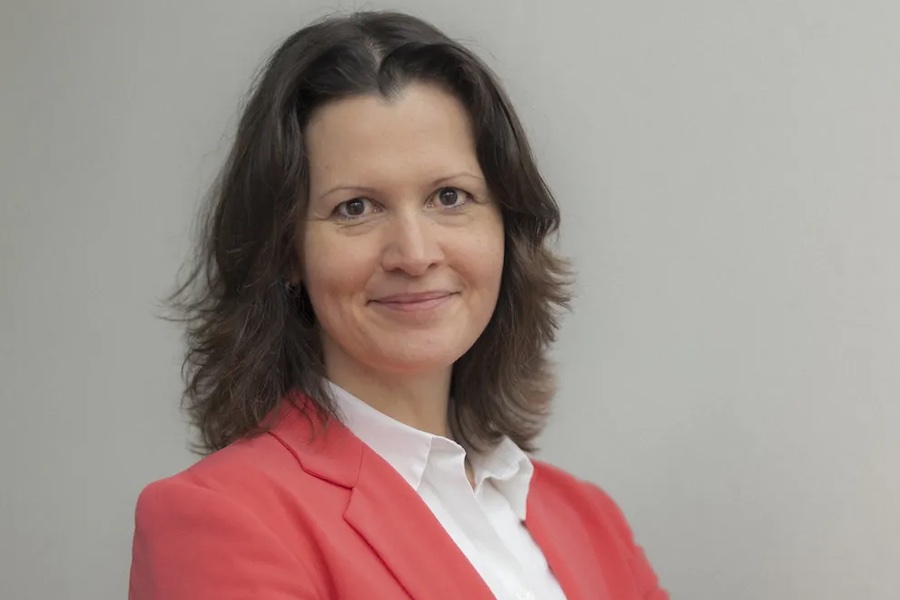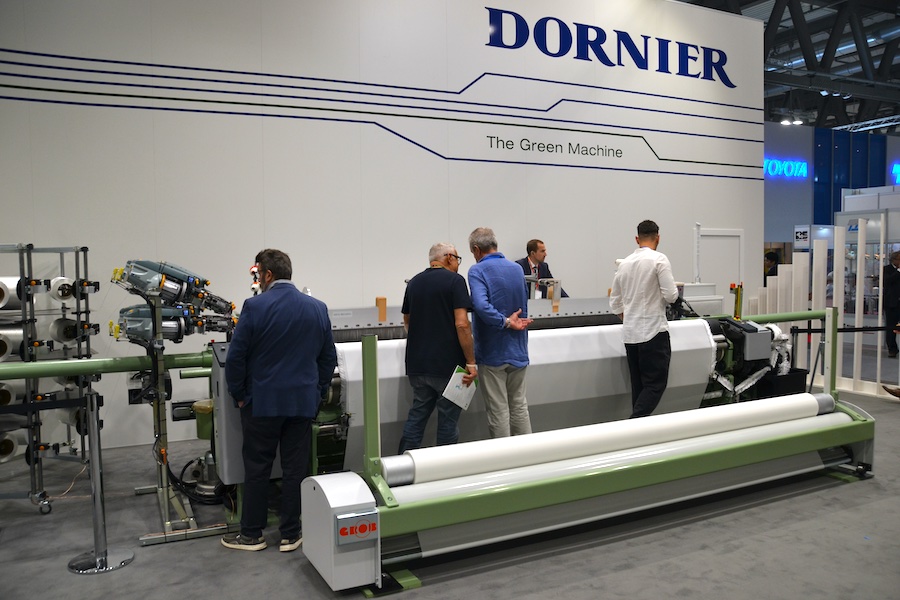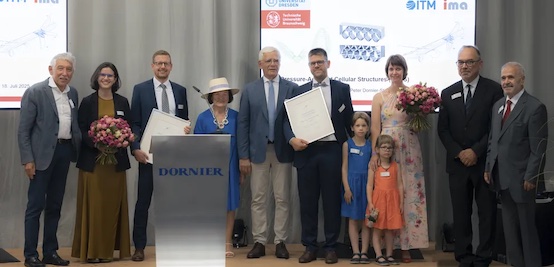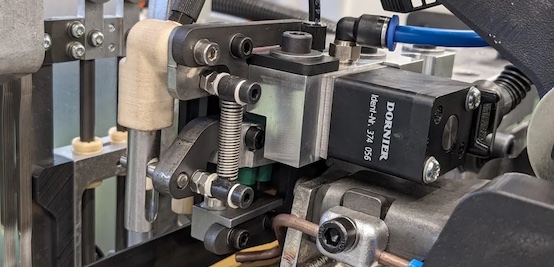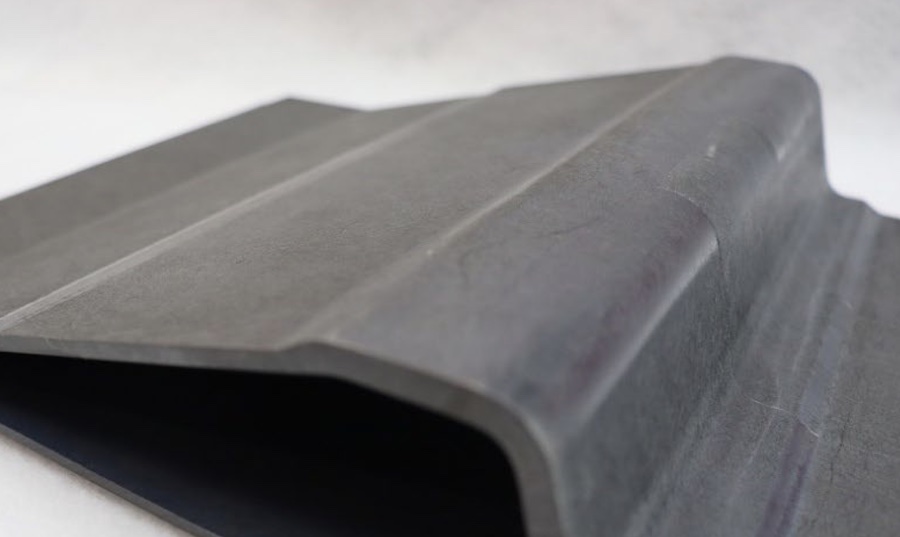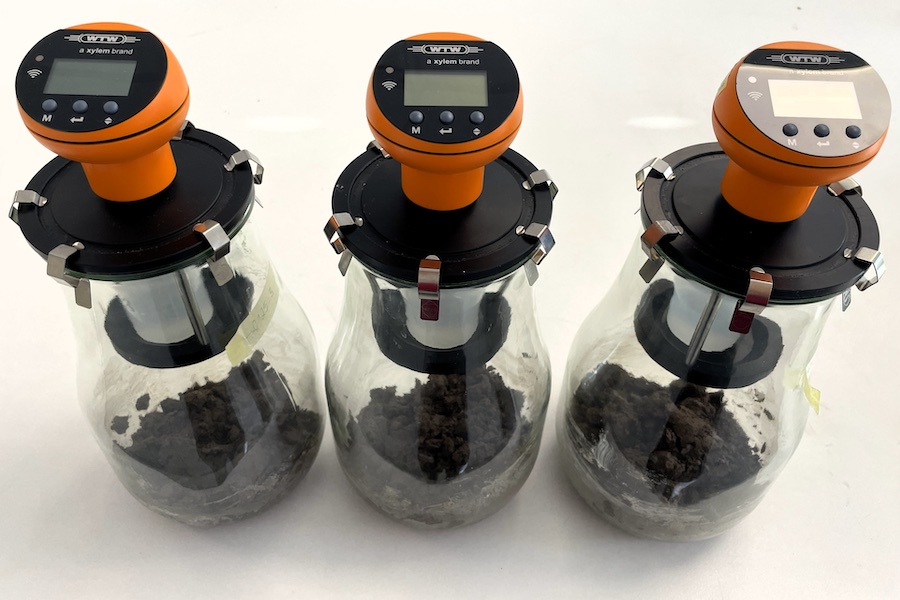#Research & Development
Peter Dornier Foundation Prize 2022 honours textile research on woven heart valve
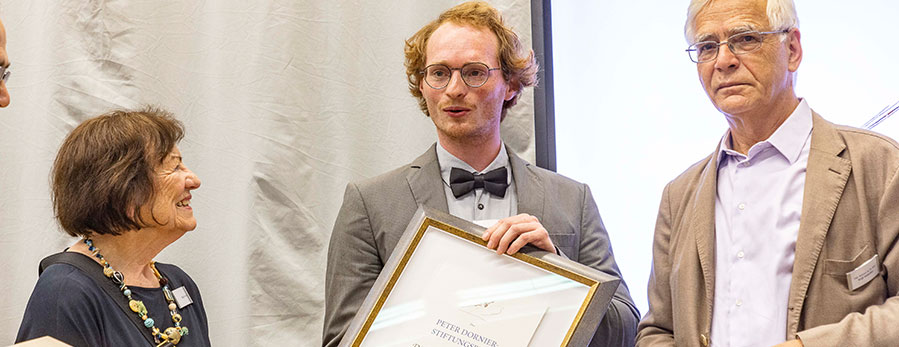
The human heart is a high-performance machine: over the course of a person's life, it beats almost three billion times, pumping around 200 million litres of blood through the body. Enormous stresses that can sometimes lead to life-threatening signs of wear and tear. If a heart valve gets out of step, patients usually get artificial-mechanical or biological valves as a replacement. However, mechanical solutions imply patients to take blood-thinning medication for the rest of their lives. In addition, there may be audible closing noises. For example, almost a quarter of patients with mechanical heart valves complain of sleep disturbances. Biological heart valves, on the other hand, such as those made from animal tissue, require a great deal of manual work and have a shorter lifetime.
Potential of weaving for medical products demonstrated
For this reason, Graduate Engineer Mathis Bruns at the Institute for Textile Machinery and High-Performance Textile Materials Technology (ITM) at the TU Dresden is researching an implant alternative made of fabric. As part of a research project that also involved heart surgeons from the Dresden Heart Centre and the University Hospital in Würzburg, Mr. Bruns provided important findings for weaving an artificial heart valve in his diploma thesis. For his work entitled "Development of tubular structures with integrated valve function", Mathis Bruns has now received the Peter Dornier Foundation Prize 2022, endowed with 5,000 euros. In his laudation, Dr. Adnan Wahhoud, former head of the development department of air-jet weaving machines at DORNIER in Lindau, said: "With his work, the winner of the award demonstrates very clearly the potential of weaving technology to produce fabrics of complex form, geometry and structure with the aim of prolonging and improving people's lives." The award-winning thesis enriches research into three-dimensional tissues for use in medicine.
Weaving replacement heart valves without seams
"A particular advantage of our approach is the integral production method", says foundation prize winner Mathis Bruns. “The geometry and function of a heart valve is that complex that woven heart valves could not be produced in this form previously. Through the combined use of a flexible rapier weaving machine with bobbin shield and a Jacquard machine, it is possible to weave the replacement heart valve in such a way that it no longer has be sewn together. Even the tubular structures for the blood vessels and the integrated valve function are ‘all of one piece’. Seams are always a weak point in textile medical products," Mr. Bruns adds. “Another advantage of the woven heart valve is the possibility to insert it by the help of minimally invasive surgery. Hence, the folded valve which is about the size of a tea light is to be pushed with a catheter via the bloodstream to the target position in the heart and unfolded there. The patient's chest and heart would then no longer have to be cut open”, explains prize winner Mr. Bruns.
Textile structure is similar to human tissue
A wide variety of medical products have always been produced on DORNIER weaving machines. Customers use them to produce fabrics for bandages, prostheses, blood filters and orthoses among other things. For Mathis Bruns, it is only evident that implants such as heart valves will more and more be woven on the machines from Lindau in the future. "Textile tissue is very similar to human tissue," he says. The human body consists largely of thread-like materials, just as a textile fabric is made up of thousands of individual threads. "Muscle fibres convey force impulses, nerve tracts send stimuli such as pain and brain cells convey information via thread-like dendrites and axons." Because of their ‘thread-like properties’, woven implants are therefore particularly suitable for medical applications.
Foundation purposes medical research and hospice
Maja Dornier, Chairwoman of the Peter Dornier Foundation, also honoured the research achievement between medicine and weaving innovation.
At the award ceremony in the Lindau DORNIER "Weaving Technology Centre" in front of around 85 guests she said, "The results of Mr. Bruns' thesis could be the basis for significantly improved medical care for people with insufficient heart valve function. The work therefore represents a great medical and social step forward.”
The Peter Dornier Foundation Prize was the idea of Peter Dornier (1917-2002), founder of Lindauer DORNIER GmbH. Since 2021, the prize is awarded annually for excellent scientific work by young people in the fields of textile technology, film stretching technology and composites as well as aviation.
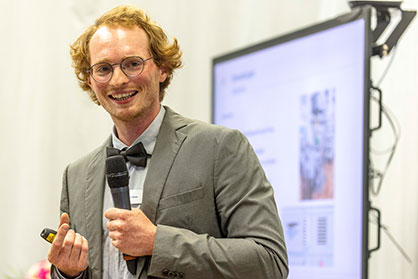
Funding for medical research is just as much a part of the aims of the Peter Dornier Foundation's as the promotion of hospice facilities for a self-determined and dignified life until the end.
Background information Lindauer DORNIER GmbH:
Lindauer DORNIER GmbH with its product lines Weaving machines, Special machines and Composite Systems® is one of the world's technology leaders. In 2021, the German family-owned company with around 1,000 employees (thereof more than 60 trainees) achieved incoming orders of approximately 510 million Euro. DORNIER weaving machines meet all the requirements of modern fabric production: flexible and gentle material use, extreme material and pattern variety, absolute functional reliability, fabric without faults and short downtimes. The DORNIER system family, consisting of rapier and air-jet weaving machines, is the contemporary answer to the demanding catalog of market requirements. In the Composite Systems Division with its P2 roving loom, 3D weaving machine, Tape production line and Tape weaving machine, the machine manufacturer bundles its decades of experience in the design of weaving machines and film stretching lines. All machines and plants are manufactured at the German production sites in Lindau and Esseratsweiler. The export share is 90% (status 2021).



